11th School Choice National Conference
22 & 23 January 2020 | Online
Alternative Education and its way forward
The 11th School Choice National Conferencewas held on 22nd and 23rd January 2021. The two days were packed with insightful sessions and discussions on education for new realities. The first panel discussion was on "Envisaging Regulations for New Realities" for which we were joined by Parth Shah, President, Centre for Civil Society; Anirudh Khaitan, Vice President, Khaitan Public School, Dr E Prasad Rao, Founder, Paromita Schools and Bhuvana Anand, Founder Director, Trayas.Tune into this discussion to learn more about the role of regulatory agencies in a post-COVID world!
The 11th School Choice National Conference was held on 22nd and 23rd January 2021. The two days were packed with insightful sessions and discussions on education for new realities.
The 2nd Panel discussion in the 11th 11th School Choice National Conference was on "Moving towards 21st century schooling". We were joined by Vishnu Karthik, Director, Heritage Schools; Vidhi Jain, Co-founder, Shikshantar and Neal McCluskey, Director, Center for Educational Freedom, CATO Institute to discuss how in the absence of in-person classes during Covid-19, children had to turn to ed-tech and online education platforms.
Watch this discussion to learn about re-aligning the education system to focus on funding students and not schools.
The 11th School Choice National Conference was held on 22nd and 23rd January 2021. The two days were packed with insightful sessions and discussions on education for new realities.
The third panel discussion was on "Ensuring access and equity in education" for which we were joined by Mr Ashok Thakur, Founder, Muni International School; Manish Sabharwal, Chairman, TeamLease Services Ltd, Tanaya Kilara, Head, Education Services, Varthana and Ekta Sodha, CEO Cadmus-Sodha Schools.
Tune into this discussion to learn how we can access bridge-financing to tide over disasters such as the current pandemic and ensure equity and access to education!
The 11th School Choice National Conference was held on 22nd and 23rd January 2021. The two days were packed with insightful sessions and discussions on education for new realities.
Professor Geeta Gandhi Kingdon delivered the keynote address at the Conference and talked about the role of governance in ensuring quality education. Watch this video to learn about the role of varying stakeholders like teachers and politicians in India's school education system.
About School Choice National Conference
School Choice National Conference (SCNC), started in 2009, is the flagship education conference hosted by Centre for Civil Society (CCS) in New Delhi each year.
Reinforcing the Centre's mission to advance choice and accountability, the day long conference aims to bring together educationists, planners, policy experts and government officials to explore, discuss and debate various dimensions of school education in India. In the past nine editions, the conference has seen many important and interesting ideas emerging from the discussions, during the sessions and on the sidelines of it. The conference deliberates choice in education, by bringing together industry stakeholders to discuss the extant policy framework and to recommend choice within it.
SCNC, now in its 10th year, will delve into modalities of education that challenge conventional models of state prescribed learning. The critics of the 'factory-model' of schooling argue that such conventional models construct hierarchical student-teacher relationships, denigrate the learner's autonomy, focus on mimesis and rote-learning, standardise learning materials, and delegitimize distinct learning abilities of children.
India has a rich tradition on the philosophy of education and vibrant debates on the mode and purpose of learning, the ontology of the 'learner' as a being and as a member of a diverse society, as well as sustained experiments in alternatives to the school-based model. Philosophers, political leaders, and educationists have examined the role of community, state, adults, history, and socio-economic location in crafting the 'learning experience' of children in India. Through the day-long academic conference we aim to appraise these ideas and experiments in the context of a country in rapid transition. As learning outcomes attained in traditional models of schooling continue to falter, the uncritical adoption of standardised curriculum, uniform pedagogy, passive teaching-learning styles and high-stakes examinations is under scrutiny. The fledgling learning levels of children in India have been well-documented through multiple surveys and reports such as the National Achievement Survey, as well as the ASER . The National Achievement Survey 2017 cites/reports identifies Delhi as one of the worst five performing states. Among class 5 children surveyed in Delhi, only 44% could answer a math question and 52% a language questions. In Bihar, 52% class 5 students could answer math questions, and 57% a language questions. Even in Karnataka, only 67% of class 5 children could answer a mathematics question and 71%, a language question.
SPEAKERS
-
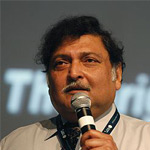 Dr Sugata Mitra
Dr Sugata Mitra -
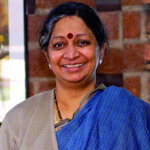 Geeta Dharmarajan
Geeta Dharmarajan -
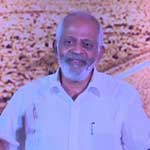 S Gopalan
S Gopalan -
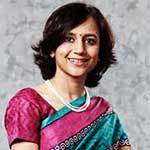 Gitanjali JB
Gitanjali JB -
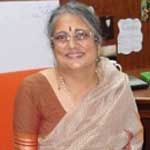 Neeraja Raghavan
Neeraja Raghavan -
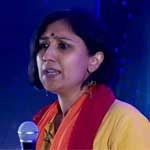 Vidhi Jain
Vidhi Jain -
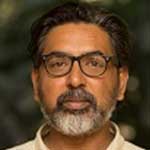 Ajay Kumar Singh
Ajay Kumar Singh -
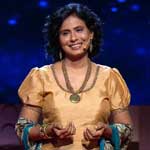 Supriya Joshi
Supriya Joshi -
 Anju Musafir
Anju Musafir -
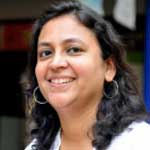 Deepa Avashia
Deepa Avashia -
 Santhya Vikram
Santhya Vikram -
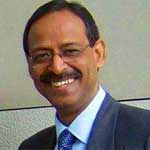 Anil Swarup
Anil Swarup -
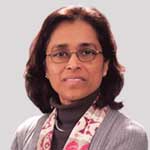 Geeta Gandhi Kingdon
Geeta Gandhi Kingdon -
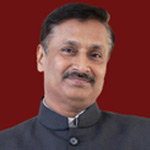 Chandra Bhushan Sharma
Chandra Bhushan Sharma











